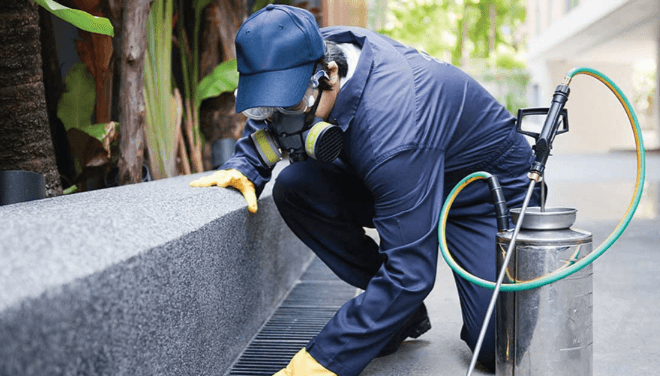Effective Strategies for Preventing Common Household Pests

Pests can turn a cozy home into a place of discomfort and health risks. Whether it’s ants invading your kitchen, mice scurrying in your attic, or cockroaches making a surprise appearance, household pests are more than just a nuisance—they can pose serious threats to your home and well-being. Fortunately, with the right preventive strategies, you can keep these unwanted guests at bay. This article explores comprehensive methods to prevent common household pests, offering practical solutions and expert advice for maintaining a pest-free home.
Understanding the Threats: Common Household Pests
Before diving into prevention strategies, it’s essential to understand what you’re up against. Common household pests include insects like ants, cockroaches, and termites, as well as rodents like mice and rats. Each of these pests brings its own set of problems:
- Ants can contaminate food and spread bacteria.
- Cockroaches are known for triggering allergies and asthma, especially in children.
- Termites can cause significant structural damage to your home.
- Rodents not only spread diseases but can also chew through wires, creating fire hazards.
Understanding these threats underscores the importance of proactive prevention.
Creating a Pest-Free Home Environment
The most effective way to prevent household pests is to make your home an unattractive place for them. This involves maintaining cleanliness, sealing entry points, and eliminating sources of food, water, and shelter that pests seek. Here’s how you can achieve this:
1. Maintain Cleanliness
A clean home is less appealing to pests. Regularly vacuuming, sweeping, and wiping down surfaces can remove food crumbs and other residues that attract pests. Pay special attention to the kitchen, where food is often stored and prepared.
- Clean Spills Immediately: Even small crumbs or spills can attract ants and other pests.
- Store Food Properly: Use airtight containers for storing food and ensure that perishables are kept in the refrigerator.
- Dispose of Garbage Regularly: Make sure trash is taken out regularly and bins are kept clean.
2. Seal Entry Points
Pests can enter your home through the smallest of openings. Inspect your home for potential entry points and seal them off.
- Check for Cracks and Gaps: Inspect the foundation, walls, windows, and doors for any cracks or gaps. Use caulk or weather stripping to seal them.
- Install Door Sweeps: Gaps under doors can be inviting for pests. Installing door sweeps can block these entry points.
- Repair Screens: Ensure that window and door screens are intact and free of holes.
3. Eliminate Water Sources
Just like humans, pests need water to survive. By eliminating excess moisture in your home, you make it less hospitable to them.
- Fix Leaks: Repair any leaky pipes, faucets, or roof leaks to prevent water accumulation.
- Use Dehumidifiers: In areas like basements, where moisture levels can be high, use a dehumidifier to reduce humidity.
- Clear Standing Water: Make sure there’s no standing water around your home, such as in plant trays or clogged gutters.
4. Manage Waste and Clutter
Pests thrive in environments where they can find food and shelter. Managing waste and reducing clutter can significantly decrease the likelihood of a pest infestation.
- Keep Trash Cans Sealed: Use trash cans with tight-fitting lids and empty them regularly.
- Organize Storage Areas: Keep basements, attics, and garages organized and clutter-free to eliminate hiding spots for pests.
- Avoid Storing Wood Near the House: If you store firewood, keep it at least 20 feet away from your home to prevent attracting termites and other pests.
Specific Strategies for Common Pests
Different pests require different strategies for prevention. Below are some specific methods for preventing common household pests:
Preventing Ants
- Use Ant Baits: Place ant baits near entry points or areas where you’ve seen ants. The ants will carry the bait back to their colony, effectively eliminating the problem.
- Create a Barrier: Use diatomaceous earth or other natural repellents around the perimeter of your home to create a barrier ants won’t cross.
Preventing Cockroaches
- Keep the Kitchen Spotless: Cockroaches are especially attracted to food and moisture. Keeping your kitchen clean and dry is crucial.
- Use Boric Acid: A light dusting of boric acid in areas where cockroaches are likely to crawl can be an effective deterrent.
Preventing Termites
- Regular Inspections: Have your home inspected for termites annually, especially if you live in an area prone to termite infestations.
- Reduce Wood-to-Soil Contact: Termites are attracted to wood in contact with soil. By reducing this, you decrease the likelihood of an infestation.
Preventing Rodents
- Set Traps: Use traps in areas where you’ve noticed rodent activity. Traditional snap traps, glue traps, and live traps are all effective options.
- Remove Outdoor Food Sources: Bird feeders, pet food, and fruit trees can attract rodents. Keep these sources away from your home.
Using Natural and Chemical Deterrents
There are both natural and chemical options for deterring pests. Natural deterrents are often safer for homes with children and pets, while chemical options may offer more potent protection.
Natural Deterrents
- Essential Oils: Peppermint, lavender, and eucalyptus oils can be effective against ants, spiders, and other insects. Spray these oils in areas where pests are likely to enter.
- Vinegar: A solution of vinegar and water can repel ants and fruit flies. Use it to wipe down surfaces in your kitchen.
Chemical Deterrents
- Pesticides: While effective, pesticides should be used with caution. Always follow the manufacturer’s instructions and consider professional application for severe infestations.
- Insect Growth Regulators (IGRs): IGRs prevent pests from reaching maturity and reproducing, effectively controlling populations over time.
Hiring Professional Pest Control Services
Sometimes, despite your best efforts, a pest problem can get out of hand. In these cases, hiring a professional pest control service may be necessary. Professionals have the expertise and tools to tackle severe infestations safely and effectively.
- When to Call a Professional: If you notice signs of a serious infestation, such as frequent sightings of pests, damage to your home, or droppings, it’s time to call in the experts.
- What to Expect: A pest control professional will assess the situation, identify the type of pest, and implement a treatment plan. They may also offer advice on further prevention measures.
Preventing Seasonal Pests
Pests are often seasonal, with different species being more active during certain times of the year. Understanding the seasonal patterns of pests can help you implement timely preventive measures.
- Spring and Summer: Warm weather brings out ants, mosquitoes, and flies. Focus on keeping your home cool and dry, and use screens on windows and doors.
- Fall and Winter: As the weather cools, rodents and spiders may seek shelter indoors. Seal entry points and keep clutter to a minimum.
Integrated Pest Management (IPM): A Holistic Approach
Integrated Pest Management (IPM) is a comprehensive approach that combines various strategies to prevent and manage pest infestations. It emphasizes long-term prevention and minimal use of chemicals.
- Monitoring: Regularly inspect your home for signs of pests.
- Cultural Practices: Maintain cleanliness, reduce clutter, and manage waste effectively.
- Biological Controls: Use natural predators, like ladybugs for aphids, to control pest populations.
- Chemical Controls: When necessary, use pesticides as a last resort, focusing on targeted applications.
FAQs
What are the most effective natural pest deterrents? Essential oils, vinegar, and diatomaceous earth are some of the most effective natural pest deterrents. These can repel a variety of pests without the use of harsh chemicals.
How often should I inspect my home for pests? It’s a good practice to inspect your home for pests at least once every season. Regular inspections can help catch potential infestations early before they become serious problems.
What should I do if I find a mouse in my home? If you find a mouse in your home, set traps to capture it and inspect your home for potential entry points. Seal any gaps or cracks where the mouse could have entered and consider calling a professional if the problem persists.
Are chemical pesticides safe to use in homes with pets? Chemical pesticides can be hazardous to pets if not used correctly. Always read the labels and follow the instructions carefully. Consider using natural or pet-safe alternatives if possible.
How can I prevent termites from infesting my home? To prevent termites, reduce wood-to-soil contact around your home, keep firewood away from the house, and schedule regular termite inspections. Using termite-resistant materials during construction can also help.
Is it worth hiring a professional pest control service? Yes, hiring a professional pest control service is often worth it, especially for severe infestations. Professionals have the expertise to identify and eliminate pests safely and effectively, and they can provide ongoing prevention advice.
Conclusion
Preventing common household pests requires a proactive approach, combining cleanliness, home maintenance, and strategic deterrents. By understanding the habits and needs of pests, you can make your home less inviting and avoid the discomfort and health risks they bring. Whether you choose natural methods or professional services, the key is to act quickly and consistently to maintain a pest-free environment. Remember, a little effort now can save you from a much bigger problem down the road.




